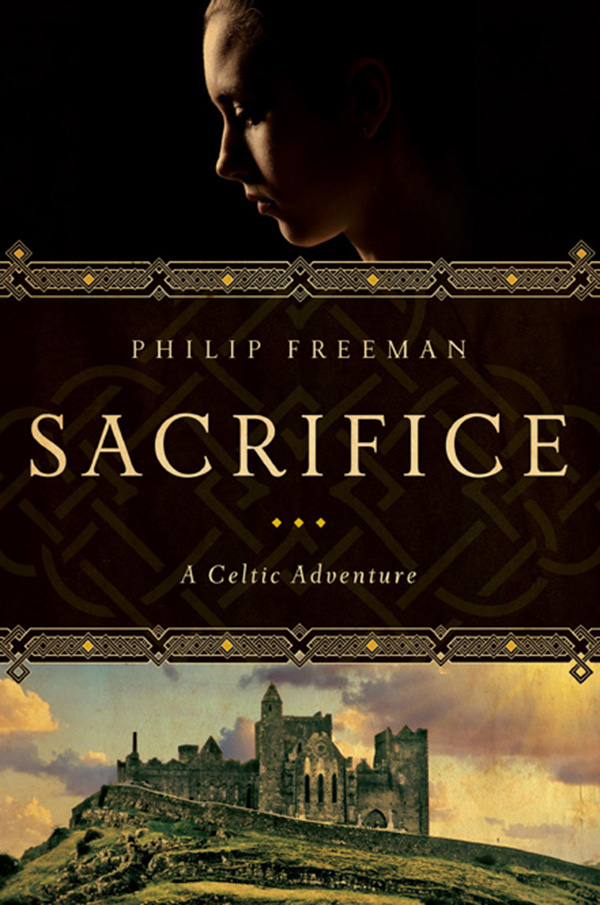
Sacrifice
کتاب های مرتبط
- اطلاعات
- نقد و بررسی
- دیدگاه کاربران
نقد و بررسی

September 1, 2015
In this worthy successor to Freeman's debut historical mystery set in sixth-century Ireland, St. Brigid's Bone, the body of a murdered nun is found in a bog, and swiftly thereafter a second nun, decapitated and hung from a tree, is discovered. Sister Deirdre and her Druid grandmother come to a startling conclusion: someone is practicing an ancient Druidic rite of sacrifice, targeting the nuns of St. Brigid's Monastery. Deirdre is forced to make a terrible choice between her Christian religion and her Celtic culture, and Sister Anna expels her from the monastery. This paradoxically eases Deirdre's way to find the culprit, which she must do before the seventh and final sacrifice, in order to maintain peace between the eastern and western clans of the kingdom. VERDICT This novel is a bit darker, but like its predecessor shows a good knowledge of early Ireland. There's less time spent on character development here, but the plot is well paced and the mystery deeper than it first appears. Readers who enjoyed the first volume will want to pick this up. Fans of Peter Tremayne's "Sister Fidelma" series might also be interested in following Deirdre's adventures.--Pamela O'Sullivan, Coll. at Brockport Lib., SUNY
Copyright 2015 Library Journal, LLC Used with permission.

August 15, 2015
It's druids versus Christians in a series of ritual murders that rend sixth-century Ireland. Although Deirdre became a nun after the death of her young son, she still retains her status as a druidic bard. She's worked to find a balance between being a sister of holy Brigid and her allegiance to her beloved grandmother, a well-respected seer who raised her in druid traditions. But not everyone is happy with Deirdre's double loyalty. Sister Anna, the abbess of St. Brigid's monastery, seems even more mistrustful when Sister Grainne, an elderly hermit, is found in a bog, garroted with the lanyard of her own cross and with her throat slit. Father Ailbe, who doubles as a physician and rattles off medical terminology with the ease of a modern forensic scientist, reports that Grainne was drugged with mistletoe juice and was in a peaceful coma before her death. Hers is only the first of many murders of nuns, all killed according to rituals of druidic sacrifice. One of the victims is the daughter of a powerful clan leader who demands revenge on the druids. Fearing a rift between Christian and druid and outright warfare among the clans, King Dunlaing turns to Deirdre, who not only has a foot in both religious camps, but also lives in Kildare, midway between the eastern and western clans. As his designated detective, she has more time to follow his orders (and apparently to invent the Irish alphabet) after Sister Anna expels her from the monastery. When Deirdre's cousin, another solitary nun, is attacked, she denounces her assailant as the murderer. He doesn't deny it, even if it means being burned at the stake. But just when Christians and druids alike think it's safe to leave their daub-and-wattle huts, another murder proves how wrong they are-and Deirdre must summon all her courage to face the threats to herself, her family, and her community. Despite Freeman's earnest enthusiasm for his subject, this sequel to St. Brigid's Bones (2014) works marginally better as a mystery than as a historical novel.
COPYRIGHT(2015) Kirkus Reviews, ALL RIGHTS RESERVED.

September 15, 2015
Freeman's sequel to Saint Brigid's Bones (2014) gives readers another fascinating glimpse into sixth-century Irish life, with the story of a killer's attacks on the nuns of Saint Brigid's monastery. Only someone with a deep-set knowledge of Druidic sacrificial techniques could be responsible. Sacrificial killingsbeginning with the decapitated, exsanguinated body of Sister Grainne, discovered in a bogcontinue despite Sister Deirdre's efforts to identify and stop the slayer. Death after gruesome death creates panic and suspicion among the sisters, until even Deirdre is expelled from the community for her druidic leanings. The author, who holds a PhD in classics and Celtic studies from Harvard, gracefully melds his knowledge of Irish history and culture with a stylish storyteller's talent for suspense, drama, and emotional appeal. Deirdre embodies the historical clash and eventual assimilation of folk beliefs, paganism, and the new religion of Christianity, but she melds all of that with a spirit of peacekeeping and compromise. Readers who appreciate strong, medieval female sleuths, like Sister Fidelma (in Peter Tremayne's series) and Hilda of Whitby (in Nicola Griffith's Hild, 2013), will wait to hear much more from Sister Deirdre.(Reprinted with permission of Booklist, copyright 2015, American Library Association.)

























دیدگاه کاربران